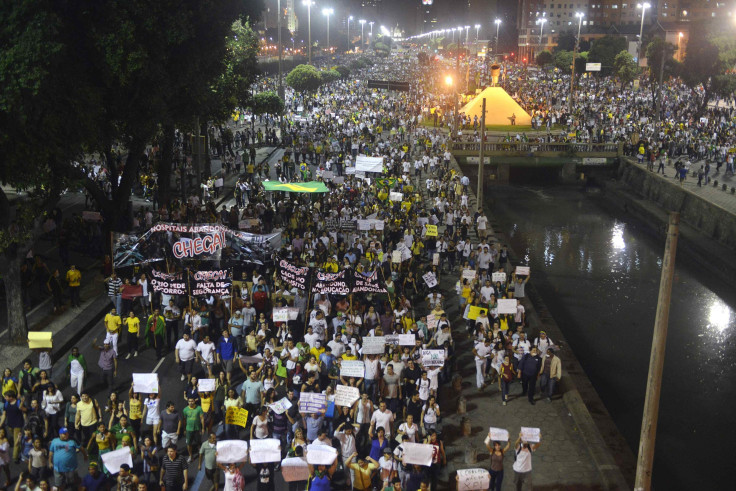What’s Next In Brazilian Protests? Unions Call First General Strike In 22 Years

Brazil has had a couple of months of firsts. First massive demonstrations in its history, first protests against President Dilma Roussef’s left-leaning government, first attacks against soccer stadiums. This week’s first is a general strike called by unions for Thursday, something that had not happened in Latin America's biggest economy for 22 years.
The strike has already caused trouble in seven Brazilian states in its early hours, with protesters blocking highways and cutting all access to the biggest cities. Vía Dutra, which connects São Paulo with Rio de Janeiro and is considered the most important road in the country, has been blocked since 5 a.m. local time, reports Rio de Janeiro newspaper O Globo.
This “Dia Nacional de Luta” (National day of struggle) is the only the fourth general strike ever in the history of Brazil. The last one happened in 1992, against the administration of then-President Fernando Collor de Mello, who resigned as a result.
The strike marks the joining of the unions with the popular movement, which barely a month ago declared itself “without parties, without leaders and without flags.”
© Copyright IBTimes 2024. All rights reserved.





















